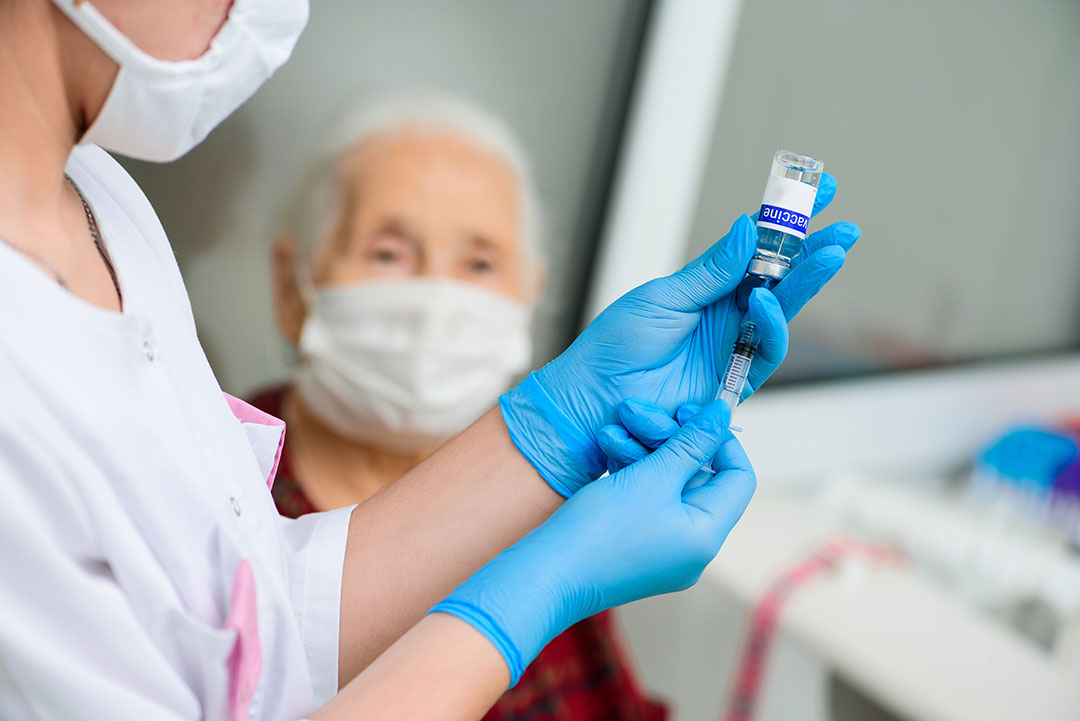Mpox: Why things just got more dangerous for people with undiagnosed and advanced HIV
Researchers have identified a clinically severe form of mpox with a high fatality rate in people with advanced HIV. Prof Chloe Orkin has been investigating some of these cases and explains the implications.
- 28 February 2023
- 6 min read
- by Linda Geddes

Mpox (formerly known as monkeypox) has faded from the news in recent months. What is the current situation?
The disease has been largely contained in Europe. But worldwide there are continued reports of new cases, in smaller numbers than early on in the multi-country outbreak. So, the virus is still circulating and spreading from human to human, but in small numbers. This is because a lot of people who are at risk have been vaccinated, and many people at risk have had mpox, so that’s likely to be keeping things down. Even so, the fact it is circulating in humans in many countries means a sparking event could potentially trigger another wildfire of infections.

"Everyone with mpox needs to be tested for HIV. If someone has HIV and gets mpox, their CD4 count must be measured urgently to see whether they’re at risk."
Prof Chloe Orkin
Your team has just identified a new form of mpox that is affecting people with advanced HIV. How did that discovery come about?
I’m an HIV researcher, and at the beginning of the outbreak in May 2022 I reached out to my clinical and research networks in all the countries where mpox was being found, asking if anyone had seen any cases. We formed an international collaborative group of clinicians, called SHARE-net, and published a case series of 528 patients, describing the nature of these mpox infections.
We found that a substantial proportion of patients with mpox are living with HIV or are on pre-exposure prophylaxis to prevent it. If they have a good CD4 count – an indicator of immune function suggesting that their immune system is strong and the HIV virus is under control – their outcomes from mpox are the same as for people without HIV. It is an unpleasant disease, and I wouldn’t wish it on anyone, but it is self-limiting.
However, some of the people in my network were contacting me saying, we’ve got these people with HIV with very severe disease, and sending me images of these cases. I began to see a pattern, so I asked the network if they had any patients with a CD4 count of less than 350 cells per mm3. We identified 382 cases.
How is mpox behaving in these patients?
What we found is that in people with the weakest immune systems – a CD4 count of less than 200 cells per mm3, which is also the threshold below which other diseases can behave very differently in people with HIV – there is a 15% mortality (death) rate. Below 100, it is close to 30%. These people are suffering from a very severe, disseminated form of mpox that looks completely different to how it looks in people with stronger immune systems. Normally the disease affects the area around the site of entry, but in this case it is disseminated all over the body, and the sores are extremely severe and destructive and spreading into each other. The virus is also causing lung disease. It is horrific.
"In terms of learning from COVID, I think it’s really depressing that we're in a situation again where there’s no vaccine access in the countries that need it most."
Prof Chloe Orkin
Is a new mpox virus responsible for these infections, or is it the same virus that’s been circulating since May?
It is the same virus, but it is behaving completely differently in these people. This is a pattern we’ve seen before with HIV. There are 14 other infections that are on a list of ‘AIDS-defining conditions’, which do a similar thing. We are calling for mpox to be added to that list, because clinicians worldwide use this classification to guide their management of people who are most at risk of dying from these infections.
Have you read?
How would adding mpox to that list help?
There are different regimens of preventive antibiotics that would be used to manage them and keep them safe from other infections, and clinicians would actively look for other opportunistic infections from that list of 14. It would mean they’d get better care, because any clinician, whether they’re a specialist or non-specialist, would understand that that they are considered to be very sick people, and that in some coutries this would unlock access to certain benefits like social housing and social care.
Is anyone else at risk from this severe form of mpox?
I think that there’s a high likelihood that people who have had solid organ transplants, or who are being treated for haematologic malignancies, such as leukaemia, lymphoma and multiple myeloma, and are very immunosuppressed, are likely to be at very high risk if they were to get it. They may also be at risk of these other 14 opportunistic infections.
What else can be done to protect vulnerable individuals?
Everyone with mpox needs to be tested for HIV. If someone has HIV and gets mpox, their CD4 count must be measured urgently to see whether they’re at risk.
However, not everyone living with HIV has had a test, and people with advanced HIV disease may not show any symptoms until their CD4 count gets very low, and they are very immunosuppressed. So, if you have a friend that is questioning whether they should be tested for HIV, and doesn’t want to have a test, support them to take a test, because things have changed. There is a disease, which is now circulating at low levels in humans and will continue to do so, which is potentially lethal for people with HIV, and if they die, they can die within a month.
Also, if you know someone living with HIV, encourage them to get vaccinated against mpox, because vaccination reduces the risk of severe disease.
Is everyone able to access vaccines and antiviral drugs?
Well-resourced countries have vaccines, and people should be encouraged to have both doses because that’s where you get the best protection. However, there are huge inequities in access to vaccines and antivirals globally. Most countries in Latin America and Africa don’t have vaccines and treatments for mpox, unless they’re involved in trials. In terms of learning from COVID, I think it’s really depressing that we're in a situation again where there’s no vaccine access in the countries that need it most.
Chloe Orkin is Professor of HIV Medicine at Queen Mary University of London and Barts Health NHS Trust, UK, and director of the SHARE Collaborative, which brings together leading experts to investigate the inequalities that lead to poor sexual health and HIV.
‘Mpox in people with advanced HIV infection: a global case series’, is published in The Lancet









